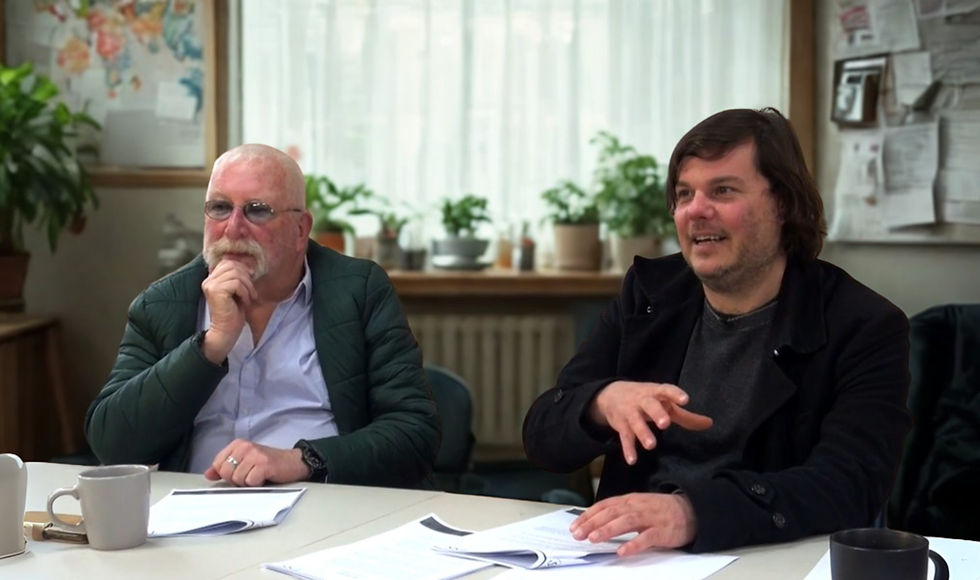If you feel lonely, you are not alone…
- Christopher Smith

- Jun 7, 2023
- 4 min read
Updated: Aug 12, 2025
‘A profound sense of loneliness’ now affects more of our worldwide population than ever before. It’s impact on health and wellbeing, even on our survival, is now being recognised...

The Australian Loneliness Report in 2018 found one in four Australians reported problematic levels of loneliness. During the COVID pandemic, this increased to more than one in three. In a recent BBC News story, a top US health official warned “the (US) is facing an epidemic of loneliness that is as dangerous to health as smoking 15 cigarettes a day”.
US Surgeon General Vivek Murthy told BBC News that US health authorities are calling for social isolation to be treated as seriously as obesity or drug abuse. Loneliness is reported to increase the risk of premature death by almost 30% through related health conditions including diabetes, heart attacks, insomnia and dementia. Lack of social connection is also linked to lower academic and work performance.
Mr Murthy said that loneliness is a "profound public health challenge" that "we should talk about" and address. "It... may surprise people to learn that the increased risk of premature death that's associated with (lack of) social connection is on par with the risks that we see from smoking daily, and greater than the risk we see associated with obesity," he said.
According to the Australian Government’s Institute of Health and Welfare, social isolation and loneliness can be harmful to both mental and physical health. They are considered significant health and wellbeing issues in Australia because of the impact they have on peoples’ lives.
If you are feeling lonely, and it is impacting your wellbeing, you are not alone. It is important not to dismiss your feelings, to reach out for help and find ways to alleviate feelings of loneliness.

Loneliness is a feeling that our social connections do not meet our needs. That’s why it is so difficult to solve. You can even feel lonely in a crowd, or if your life is full of social contact.
Loneliness is also incredibly difficult to talk about. To admit problematic levels of loneliness is to render yourself vulnerable. It is difficult to reach out, and loneliness impacts our mental health and our sense of self-worth. We isolate ourselves because we feel that no one would care anyway.
Something that may provide comfort though is that loneliness is a very common problem. 50% of us feel lonely at some point in our lives. It is very common to feel lonely after experiencing major life events, both positive and negative. People report loneliness after moving house and becoming parents, as well as following illness, injury and separation.
The fact that so many of us suffer from loneliness tells us that something is wrong when we lack quality connections. Feelings of loneliness are signals that we send ourselves that we need to seek company. It is difficult though. When we feel lonely we are less confident, we can believe we have little to offer others, or that our presence will be a burden to others.

But encouragingly, loneliness can often be alleviated. Building quality connections with others is the surest route. That’s why our shared reading programs exist. They are gentle, de-pressurised environments in which to connect over stories. They promote quality of connection. The type of connection that leaves you feeling nourished. You do not have to say you feel lonely, or admit any kind of problem to attend our groups. You can just turn up. You also don’t need to talk or do anything if you don’t want to. You can simply sit in silence until you feel comfortable. For people who feel intimidated in groups, this can be a great first step out of the ‘profound sense of loneliness.’
There are also many other community organisations who provide opportunities for people to connect with others in friendly, safe and supportive ways. Neighbourhood Centres, Children & Family Services and Seniors Services are among these. They are also many community groups who have started and continued for this very reason. The Men’s Shed is a great example of this. Men’s Sheds can now be found in many communities and are really making a difference in people’s lives. There are also Women’s Sheds popping up now too.
If you don’t feel like being social or talking to anyone, sometimes it can be helpful to do some reading. But you don’t have to read psychology or self-help books. It can often be surprisingly helpful to read a fictional story that is engaging, interesting and enjoyable, that may also cause you to explore your feelings and thoughts indirectly or even subconsciously.
Here are five great stories that may help you reflect on the idea or feelings of loneliness…
But remember, if you are feeling lonely, or someone you know is, and it is affecting your, or their, mental health or quality of life, the best thing you can do is to try to reach out to someone to talk about it, or try to spend some quality time in someone’s company.
If you are experiencing emotional distress, a crisis, or are in need of personal support, call Lifeline on 13 11 14. Their trained support workers are available 24 hours 7 days a week. You can also discuss your concerns with your GP or mental health practitioner.
For more information and inspiration from Life the Universe & Stories, follow our Facebook page.






Comments